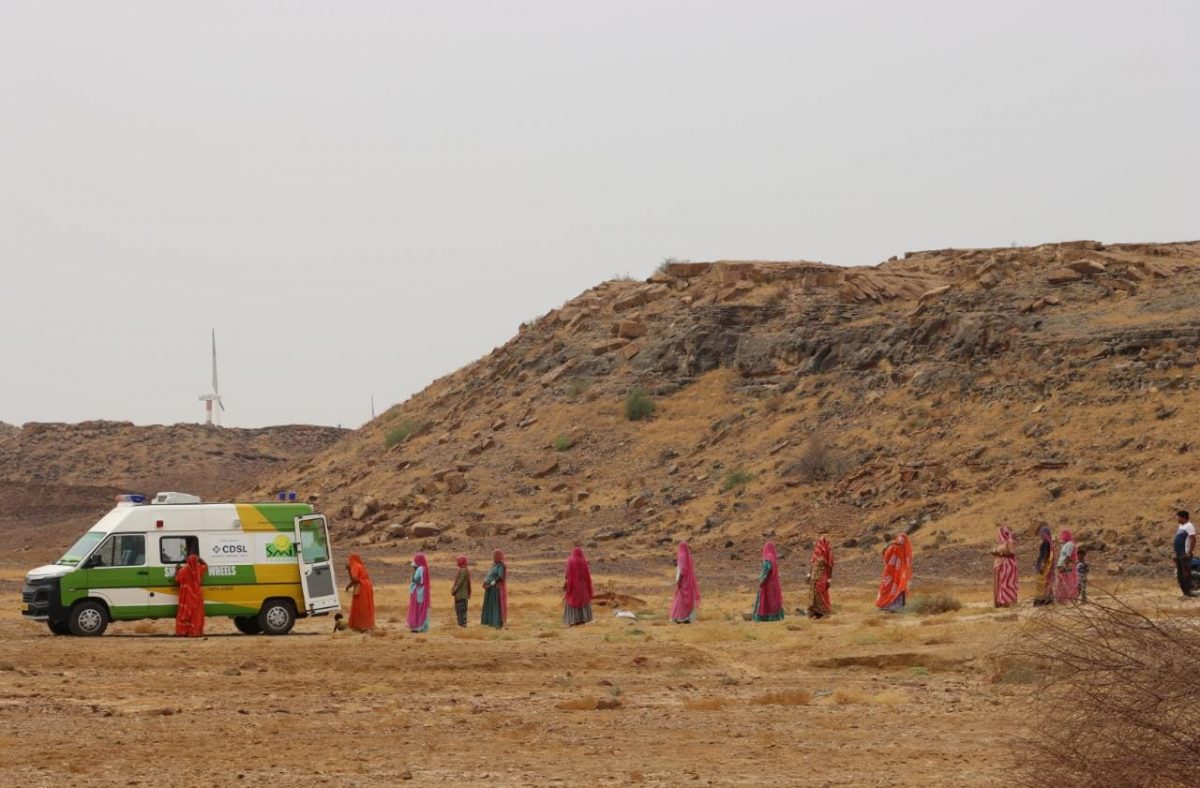Enterprises have both the funds and the intent to do good through Corporate Social Responsibility (CSR) initiatives to assist Indians in living longer, more fulfilling lives. After the COVID-19 pandemic, the relevance and necessity of proactive measures to maintain health and enhance medical services and infrastructures, particularly in rural areas, have never been more obvious.
Corporate Social Responsibility (CSR) initiatives have become instrumental in contributing to the betterment of society. CSR activities related to empowering youth and women through education and skill programmes, facilitating child education, and infrastructure development, such as hospitals, research centres, educational institutions, and sports academy, are some verticals to name a few. However, rural healthcare challenges persist as many areas continue to have limited access to these services, resulting in disparate outcomes.
Corporate Social Responsibility Initiatives in India
A healthy population is necessary for society to function successfully. Rural healthcare challenges in India include lack of access and awareness, and healthcare providers being often local and having little to no formal qualifications or training.
India has greater rates of infant mortality and anaemia, as well as lower birth weights and vaccination rates. Women have poorer health outcomes as a result of a lack of proper maternal and reproductive assistance, cultural taboos and stigmas, and a shift in familial focus as a result of rising healthcare expenses.
Numerous companies have recognized their responsibility towards society and have implemented CSR programmes focused on improving healthcare access in underserved regions.
One of the best CSR initiatives for healthcare in India include Tata Memorial Centre’s collaboration to aid Cancer Treatment and Research in Punjab. Their high-tech surgical tools will make advanced cancer treatments affordable to disadvantaged people.
Greenply Industries Ltd, a renowned plywood maker, is conducting an ongoing healthcare project in Tizit and nearby villages of Mon district, Nagaland, where the firm operates a facility. It aims to increase access to medical services in distant places and raise community knowledge about healthy and clean living.
How CSR Can Help Improve Healthcare in Rural India
Businesses must discover more ways to partake in healthcare-related CSR activities. Some are as follows:
Work Collaboratively
Corporations can contribute to the improvement of healthcare access by leveraging their resources, expertise, and influence. But with so many issues at hand, it would be necessary to collaborate with the government, local communities, non-profit organisations, and healthcare providers to develop sustainable solutions in order to effect significant change.
Prioritise Primary Health Care
It is vital that we promote efforts to make healthcare inclusive to all by allocating CSR funds to bolster our primary healthcare response framework. With a focus on well-being, nutrition, and mental health, initiatives and early indicators can improve fundamental health and encourage citizens to prioritise hygiene and sanitation.
Invest in Specific Areas That Pose Challenges
CSR programmes aim to address significant obstacles such as infrastructure deficiencies, lack of medical personnel, inadequate facilities, and limited accessibility to essential medications. By investing in these areas, businesses can enhance health outcomes, empower communities, and promote socioeconomic growth.
Training and Capacity Building
CSR initiatives should also emphasize the training and capacity building of healthcare professionals in rural areas. To this end, companies could collaborate with local educational institutions and medical colleges to develop training programmes for doctors, nurses, and community health workers.
By providing scholarships, internships, and mentoring opportunities, they could promote skill development and knowledge transfer. This approach helps address the shortage of healthcare professionals in rural regions, thereby improving the quality and availability of healthcare services.
Community Health Awareness and Preventive Measures
Companies conduct health camps, awareness campaigns, and workshops to educate rural communities about common diseases, proper nutrition, sanitation practices, and the importance of vaccination. This should be an ongoing practice with follow-ups that would empower individuals with knowledge, enable proactive healthcare-seeking behavior, early detection of diseases, and adoption of preventive measures.
Upgradation of Technology
Investing in the modernization of technology and equipment and facilitating training for the personnel is an area where corporations could contribute immensely. Even in the remotest regions of the country, medical services can be made available through the use of cutting-edge technology and digital tools.
There is a great deal of opportunity for businesses to assist our citizens in living healthier and more rewarding lives. They simply need to identify the appropriate channels and utilise their financial resources more efficiently. While CSR initiatives show tremendous promise, to effectively channel their funds, we must also prioritise innovation in healthcare and make it more accessible and affordable.
Smile Foundation and Healthcare
Smile Foundation’s healthcare programme, Health Cannot Wait is centred around the needs of those livings on the margins– urban and rural remote villagers. Ensuring that healthcare reaches their doorsteps, the programme is comprehensive and community-centric.
It takes primary healthcare services to the doorsteps of underserved communities in India. Following a two-pronged approach, the programme provides curative as well as preventive services, addressing the gaps in the availability, accessibility, and affordability of healthcare.
Our healthcare CSR associations with GlaxoSmithKline Asia, HDB, and Wells Fargo, are all associations that ensure that quality healthcare becomes a part and parcel of the lives of those who need it the most. We look forward to many more such CSR associations in the future.



